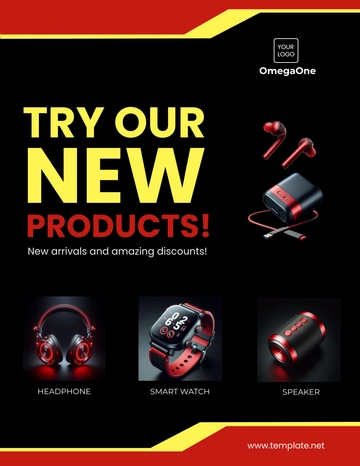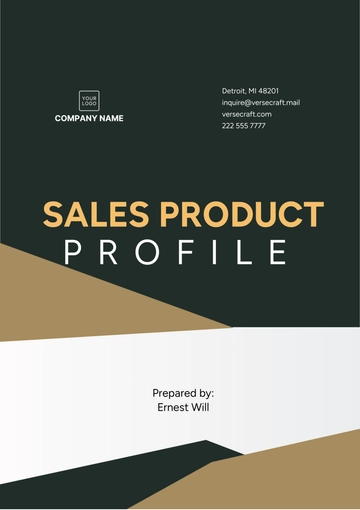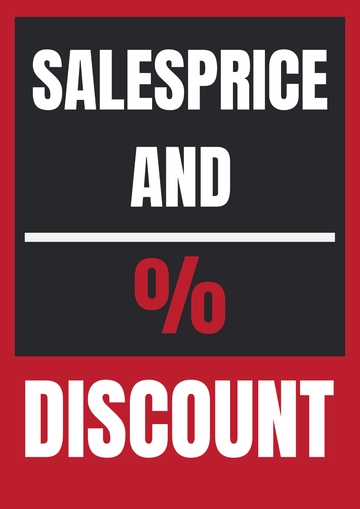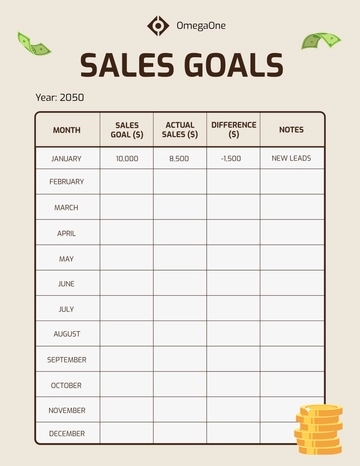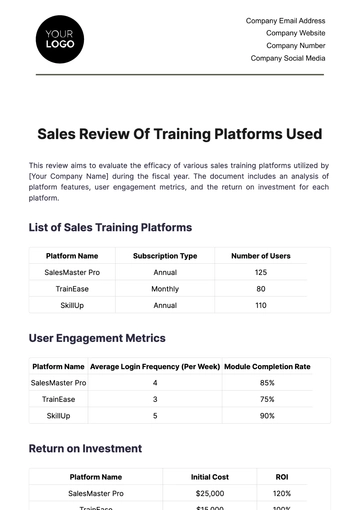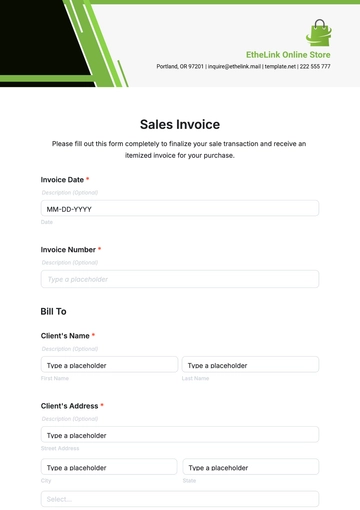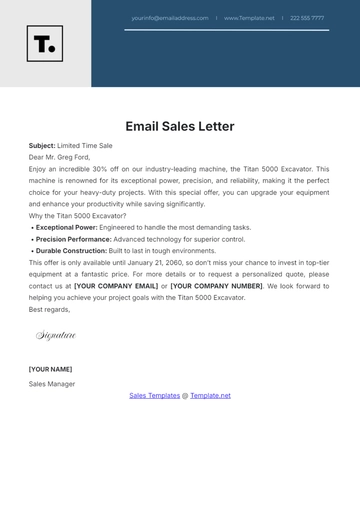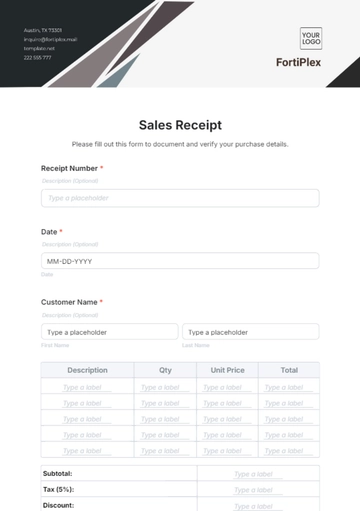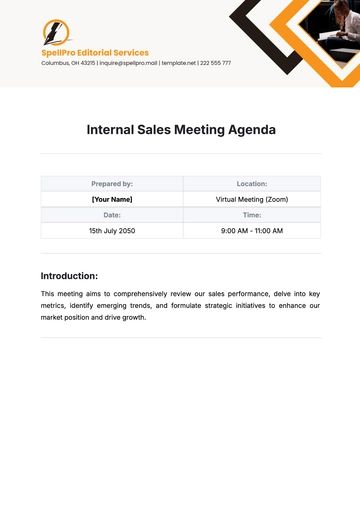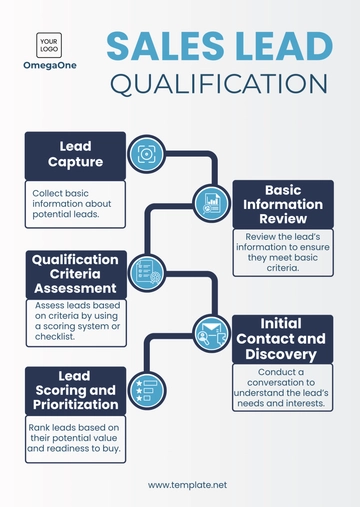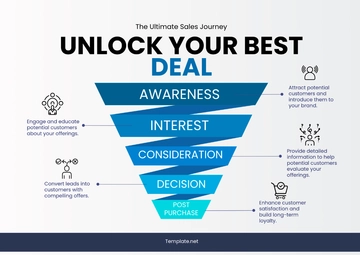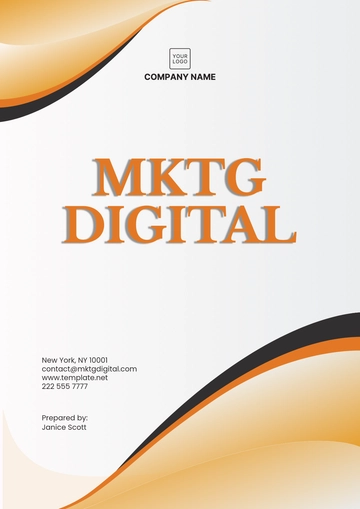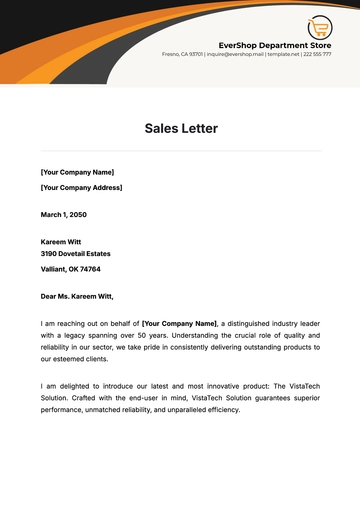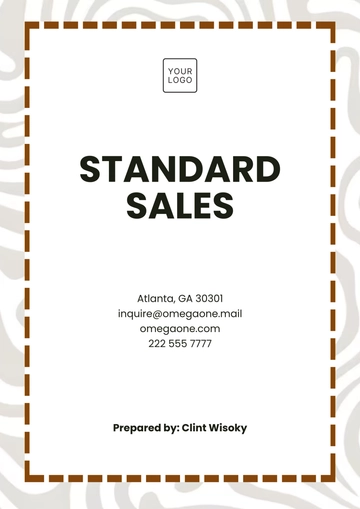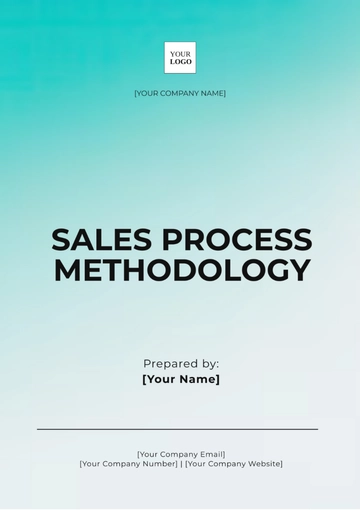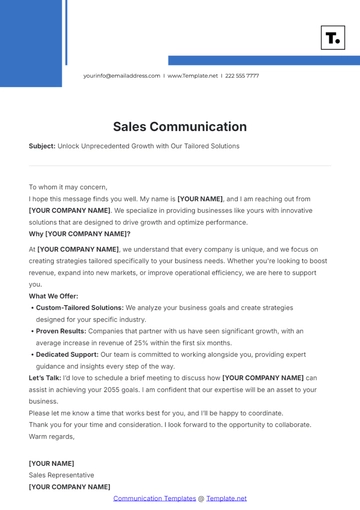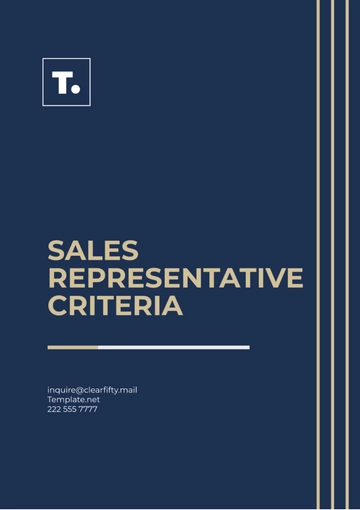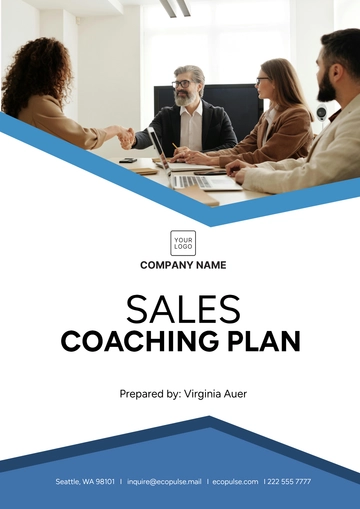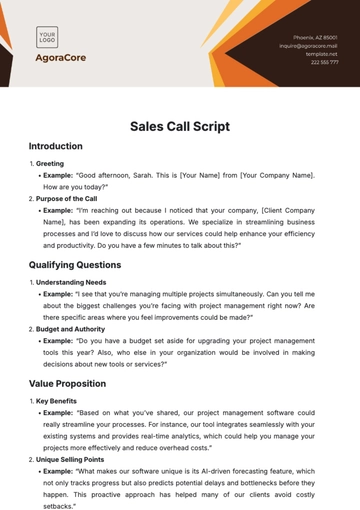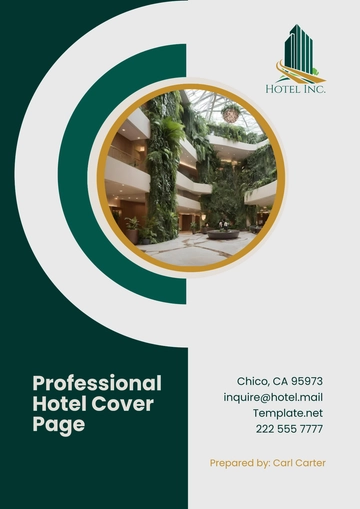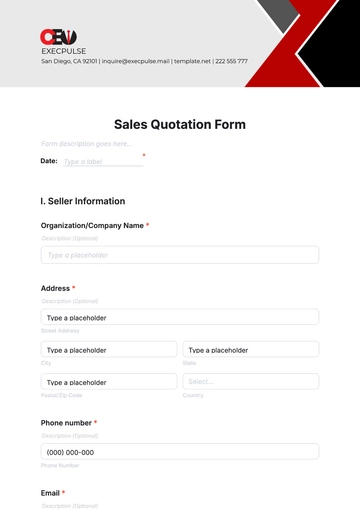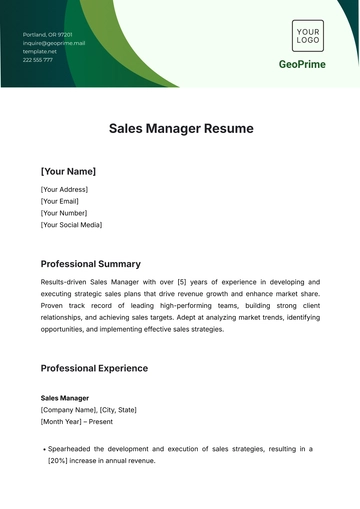Free Sales Document on Best Practices in Deal Closure
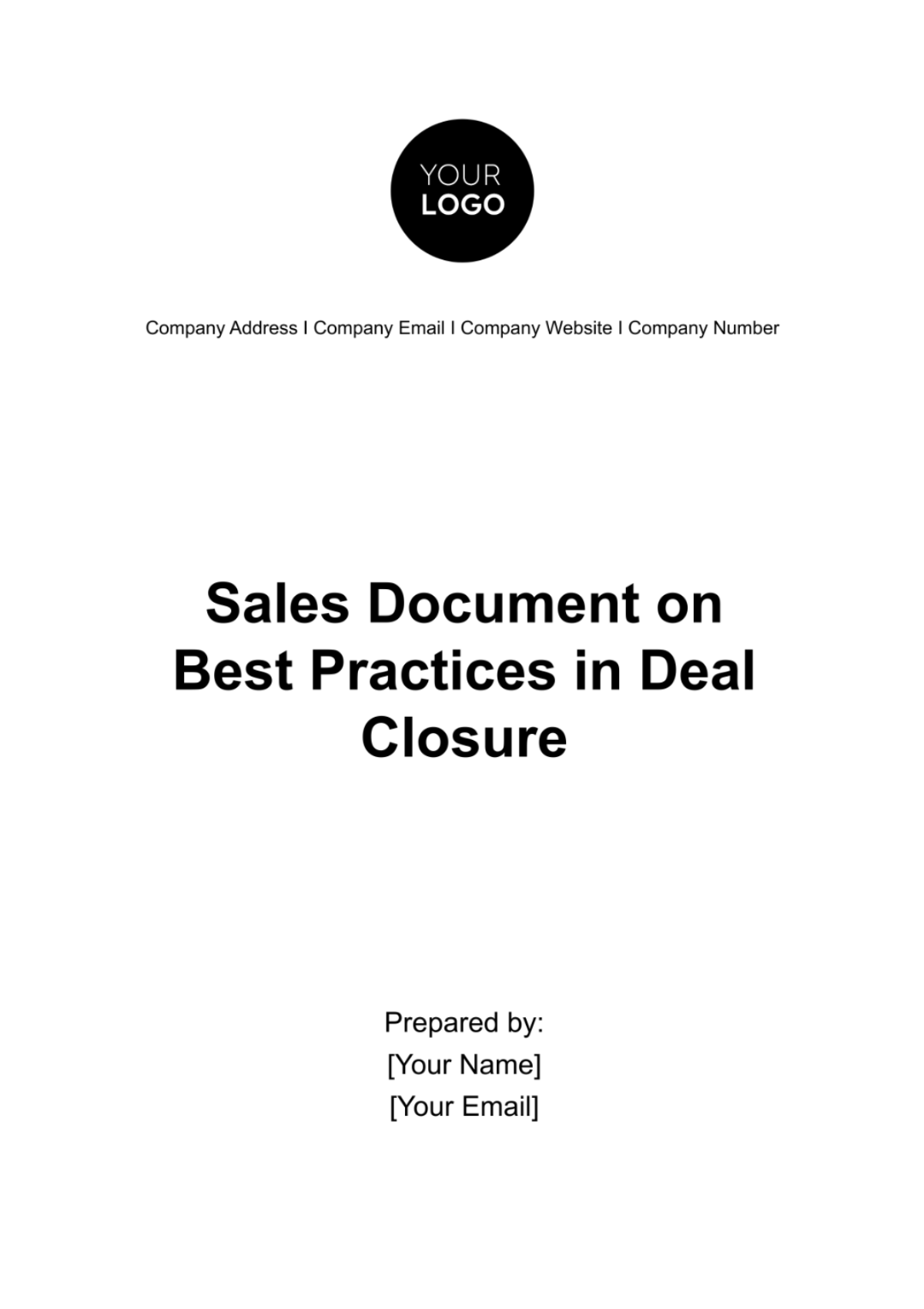
Deal Closure
I. Introduction
Welcome to [Your Company Name]'s comprehensive guide on Best Practices in Deal Closure. In today's fast-paced business environment, characterized by volatility, uncertainty, complexity, and ambiguity (often referred to as VUCA), the ability to close a deal effectively is not just an advantage—it's a necessity. As the marketplace becomes increasingly competitive and consumer preferences continue to evolve, mastering the intricacies of deal closure can mean the difference between success and stagnation. That's why we have crafted this in-depth document, aiming to serve as your go-to blueprint for sales success. Whether you are a sales veteran or a newcomer to the field, the strategies outlined here will equip you with the knowledge and tools to navigate even the most challenging sales scenarios. By the end of this guide, you will have gained invaluable insights into proven tactics and best practices that can significantly improve your deal-closing abilities.
Who We Are
[Your Company Name] is not just another name in the consultancy sector; we are pioneers who have been redefining the landscape of sales consultancy services for over two decades. Our expertise has its roots in real-world experience, backed by a solid foundation of academic knowledge. Our team comprises highly skilled sales professionals, master negotiators, and innovative strategists who are adept at turning even the most complicated sales dilemmas into straightforward, executable solutions. We specialize in delivering comprehensive services that drive measurable results, leaving a lasting impact on your organization's bottom line. Our multifaceted approach is designed to meet the unique needs of our clients, ensuring that you not only achieve your short-term sales targets but are also well-prepared to tackle future challenges. Trust us to be your partners in building a robust, effective, and result-driven sales process.
II. Objectives
The purpose of this guide is multi-faceted, designed to offer a holistic understanding of the deal-closing process. We aim to create a resource that isn't just theoretical but serves as a practical tool for sales professionals at every level. Below are the core objectives that this guide seeks to fulfill:
To Understand the Life Cycle of a Sales Deal. A sales deal isn't just about that final handshake or signed contract; it's a journey that starts with identifying a potential lead and ends with a successful deal closure. Understanding this life cycle in its entirety—right from lead generation, qualification, and proposal to negotiation and eventual closure—is vital. This helps you to position your strategies effectively at every stage, ensuring a more seamless and successful outcome. By breaking down each phase and what it entails, this guide will equip you with the perspective needed to navigate the entire process adeptly.
To Identify Key Best Practices in Deal Closure. One of the primary objectives of this guide is to zero in on the best practices specifically related to deal closure. We will delve into proven strategies, techniques, and actionable steps that can transform the way you finalize deals. Whether it's the art of active listening, the nuances of handling objections, or the strategy behind a successful trial close, understanding these best practices will arm you with the skills to conclude deals more effectively.
To Showcase Successful Case Studies. Learning from the past is a powerful way to prepare for the future. To illustrate the effectiveness of the best practices discussed, we include real-world case studies that highlight different approaches to deal closure. These case studies serve as concrete examples of how the theories and strategies outlined in this guide have been successfully implemented in various scenarios, sectors, and business sizes.
To Present Our Service Packages That Facilitate Successful Deal Closures. Last but not least, we aim to present our range of service packages designed specifically to facilitate successful deal closures. We understand that different businesses have unique needs, and a one-size-fits-all approach is often insufficient. Therefore, our service packages come in various forms to suit differing requirements and budgets. Whether you are an individual, a small business, or a large enterprise, our packages offer customized solutions that provide the tools, training, and ongoing support you need to elevate your deal-closing game.
By meeting these objectives, we strive to offer you a guide that is not only informative but also exceptionally functional in enhancing your deal-closing capabilities.
III. Stages of a Sales Deal
The sales process is often complex and multifaceted, involving several critical stages that lead up to the ultimate goal: closing a deal successfully. Understanding each of these stages in depth is crucial for any sales team aiming for higher success rates and more efficient processes. Below, we delve into each stage to offer a more comprehensive understanding.
Stages | Details |
|---|---|
Lead Generation | The very first stage in any sales process is lead generation. At this point, the aim is to identify potential customers who have a need or interest in your product or service. This can be done through various methods such as digital marketing, cold-calling, social media engagement, or even traditional advertising. The key is to target the right audience and convert their initial interest into an opportunity for a deeper conversation. Lead generation is the foundation upon which the rest of the sales process is built; without a strong start here, the subsequent stages are likely to falter. |
Qualification | Once leads are generated, the next step is qualification. This involves evaluating the prospective customers to determine their suitability for your product or service. Not all leads are equal; some are more likely to convert into customers than others. Criteria such as budget, need, timeline, and decision-making authority are assessed at this stage. Qualification ensures that you focus your efforts on leads that have a higher probability of resulting in a closed deal, thereby optimizing your sales resources. |
Proposal | After qualifying leads, the focus shifts to crafting a compelling proposal. A well-thought-out proposal outlines the features and benefits of your product or service, often tailored to address the specific needs or pain points of the potential client. It also sets the terms for the deal, including pricing, delivery timelines, and any other conditions. A proposal is not just a formality; it's an opportunity to showcase your understanding of the client's needs and present your solution in a way that resonates with them. |
Negotiation | In this stage, you engage in a dialogue with the prospect to arrive at mutually agreeable terms. This could involve haggling over the price, adjusting delivery timelines, or even modifying the scope of the service or product. Effective negotiation requires a combination of skills including active listening, empathy, and assertiveness. The objective is to find a middle ground that satisfies both parties, thereby paving the way for a successful deal closure. |
Deal Closure | The final stage in the sales process is deal closure. This is where all your efforts culminate in a formal agreement between your company and the client. It may involve the signing of contracts, exchange of formal emails, or even a handshake, depending on the nature of your business. Closing a deal successfully is the ultimate validation of your sales process, but it's not the end. It often marks the beginning of a long-term relationship with the client, opening doors for future engagements and referrals. |
By understanding each of these stages in detail, you position yourself for better strategic planning, more effective execution, and ultimately, greater success in your sales endeavors.
IV. Best Practices in Deal Closure
Closing a deal is often considered the most crucial part of the sales process. It's the point where all your hard work either pays off or falls flat. This section aims to shine a light on some of the best practices that can make a significant difference in successfully closing deals. These aren't just theoretical recommendations but are tried-and-true strategies that have consistently proven effective across various industries and sales scenarios.
Table of Best Practices
Best Practice | Description | Applicability | Additional Insights |
|---|---|---|---|
Active Listening | Understanding and internalizing client needs | All stages | Active listening goes beyond simply hearing what the client says. It involves interpreting the underlying motives, concerns, and aspirations, thereby enabling you to offer solutions that are truly aligned with their needs. |
Trial Close | Gauge the prospect's readiness to finalize the deal | Negotiation | This involves asking key questions like "How does this sound so far?" or "Is this aligning with what you were looking for?" during the negotiation stage. A positive response can be a green light to proceed to closing the deal. |
Objection Handling | Addressing concerns and reservations effectively | All stages | Be prepared for common objections and have clear, concise responses ready. The ability to handle objections gracefully can often turn a 'maybe' into a 'yes.' |
Confirming Next Steps | Clearly outlining what comes next after agreement | Deal Closure | This ensures both parties are on the same page about the immediate actions following a deal. Whether it's contract signing or initial payment, clarity in next steps eliminates ambiguity and fosters trust. |
Additional Insights on Best Practices
Active Listening: This involves more than just hearing the words spoken by the client. It's an active effort to understand the complete message being sent, both verbally and non-verbally. By being attentive, you can better understand the intricacies of the client's needs, thus enabling a more tailored and effective solution.
Trial Close: A trial close is an invaluable tool that helps you understand where you stand in the negotiation. It's a non-committal question or statement aimed at assessing the client's readiness to move forward. Positive responses often suggest that the client is ready for the deal to be closed, while reservations indicate areas that might require further negotiation.
Objection Handling: Objections are natural in any sales process. The key is not to see them as roadblocks but as opportunities to provide additional information and clarity. The manner in which you handle objections can significantly impact the deal's outcome. Effective objection handling techniques include empathizing with the client, asking questions to understand the objection better, and then responding with accurate and clear information.
Confirming Next Steps: Once a deal is verbally agreed upon, it's crucial to confirm the next steps. This can include the timeline for contract signing, initial payment procedures, and any subsequent meetings or calls that need to take place. Clear communication at this stage prevents any misunderstandings that could derail the deal at the last minute.
By adopting these best practices in your deal-closing process, you significantly improve your chances of a favorable outcome, turning more prospects into satisfied customers.
V. Active Listening
Active listening is not just a supplementary skill but a cornerstone of effective negotiation and deal closure. Often, the subtleties picked up through active listening can be the difference between a successful closure and a missed opportunity. This chapter delves into the specific key actions that embody the practice of active listening, providing you with actionable strategies to enhance your deal-closing abilities.
Table of Key Actions for Active Listening
Key Actions | Description | When to Use | Additional Insights |
|---|---|---|---|
Verbal Nods | Brief affirmative statements like "I see" or "Go on" to encourage the speaker. | Throughout the conversation | Verbal nods show the speaker you are fully engaged and invite further sharing. They can also help validate the speaker's feelings or points. |
Paraphrasing for Clarity | Reiterating the speaker's points in your own words to confirm understanding. | After key points or complex explanations | Paraphrasing eliminates misunderstandings by allowing the speaker to correct you if you've misunderstood, and it demonstrates that you're actively processing what's being said. |
Asking Open-Ended Questions | Questions that can't be answered with a simple 'yes' or 'no', inviting deeper discussion. | When seeking more details or clarification | Open-ended questions such as "Can you elaborate on that?" encourage a fuller response and often reveal additional information that can be crucial for deal closure. |
Additional Insights on Key Actions in Active Listening
Verbal Nods: This is more than just a social nicety; it's a tool that can keep the lines of communication open. The simple act of nodding or offering brief verbal affirmations like "I understand" or "Please continue" can encourage the other party to reveal more than they initially intended, giving you additional information that can be advantageous in a negotiation.
Paraphrasing for Clarity: Repeating back what you've heard in your own words serves multiple purposes. Firstly, it confirms that you've understood what has been said, reducing the chance of future misunderstandings. Secondly, it often prompts the other party to either confirm your understanding or clarify their point, thereby preventing ambiguities.
Asking Open-Ended Questions: This is an invaluable tool in your active listening arsenal. Open-ended questions invite dialogue, as opposed to yes-no questions that tend to close it off. By asking for more information or clarification, you can uncover hidden objections, needs, or opportunities that may not be immediately obvious, giving you the upper hand in the closing stages of a deal.
Active listening is a dynamic and critical skill that, when employed effectively, has the potential to transform the outcome of your negotiations and deal closures. By integrating these key actions into your active listening practice, you not only show respect and build rapport but also gain valuable insights that can be leveraged for deal-closing success.
VI. Case Studies
Our case studies section aims to showcase the real-world applicability and success of the best practices and strategies we advocate for. These case studies provide you with concrete examples of how companies from diverse sectors have successfully closed deals using our tailored approaches. By examining these instances, you can gain valuable insights into the various strategies that lead to favorable outcomes in deal closures.
[Company A] - Expanding Market Reach: Utilizing a multi-channel marketing strategy, [Company A] managed to tap into new customer bases across different platforms. Their comprehensive approach included tactics such as social media engagement, targeted email campaigns, and Search Engine Optimization (SEO).
As a result, the company experienced a remarkable 20% increase in market share.
[Company B] - Reducing Churn Rate: Faced with a high churn rate, [Company B] implemented a structured Customer Retention Program that included loyalty programs, feedback loops, and personalized offers to existing customers. This holistic approach not only improved customer satisfaction but also led to a 10% reduction in churn.
By thoroughly examining these case studies, we can extract the key elements that contributed to each company's success in deal closure. Whether it's an effective marketing strategy for expanding reach or a robust customer retention program for reducing churn, the tactics used can be adapted to fit different objectives and industries.
VII. Testimonials
We understand that choosing a sales consultancy firm is a significant commitment, both in terms of time and resources. To help you make an informed decision, we've compiled testimonials from our esteemed clients who have benefited from our services and best practices in deal closure. Their success stories reflect our dedication to providing effective and actionable solutions.
Sample Testimonials
"[Your Company Name] gave us the tools we needed to close deals faster and smarter." |
|---|
Client: [Person C], [Company D]
Context: [Company D] faced challenges in expanding their market reach and sought to expedite their deal-closure process. After engaging with [Your Company], they achieved a 20% increase in market share.
How We Helped: Our multi-channel marketing strategy and best practices in deal closure empowered [Company D] to navigate complex negotiations, ultimately securing more profitable contracts.
"[Your Company Name] has revolutionized our sales strategy." |
|---|
Client: [Person D], [Company E]
Context: Struggling with a high churn rate, [Company E] was looking to revamp its customer retention approach. They achieved a 10% reduction in churn after applying our strategies.
How We Helped: We assisted [Company E] in crafting a comprehensive customer retention program, featuring loyalty programs, feedback loops, and personalized offers. The result was a more cohesive and effective sales strategy that significantly reduced churn.
These testimonials from [Company D] and [Company E] serve as validation of our expertise and effectiveness in facilitating successful deal closures. When you partner with [Your Company], you're not just investing in a service; you're investing in proven strategies that yield measurable results.
VIII. Pricing Packages
Choosing the right pricing package is crucial for maximizing the return on your investment in sales consultancy services. Our pricing structure is designed to offer flexibility and scalability, catering to businesses of all sizes and requirements. Below, we provide an in-depth look into our various pricing packages, detailing the services included in each, to assist you in making an informed decision.
Package Name | Services Included | Key Features | Price |
|---|---|---|---|
Basic | Sales Fundamentals |
| $[Amount] |
IX. Conclusion
Mastering the art of deal closure is pivotal to achieving long-term business success. [Your Company Name] provides you with the skills, strategies, and solutions you need to elevate your sales process and secure more deals. Let us partner with you on your journey to exceptional sales performance.
- 100% Customizable, free editor
- Access 1 Million+ Templates, photo’s & graphics
- Download or share as a template
- Click and replace photos, graphics, text, backgrounds
- Resize, crop, AI write & more
- Access advanced editor
Maximize your deal-closing potential with Template.net's Sales Document on Best Practices in Deal Closure. It is a fully editable and customizable using an Ai Editor Tool that can provide actionable guidance from start to finish. Tailor it to fit your specific industry or client needs, and watch your sales success rate soar. Available in multiple file formats for seamless integration into your workflow.
